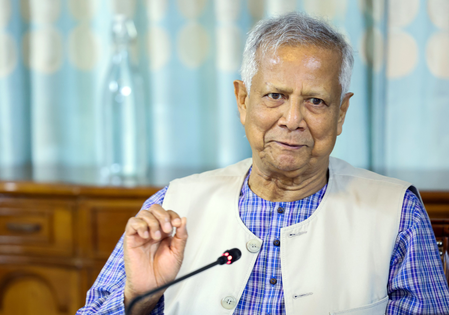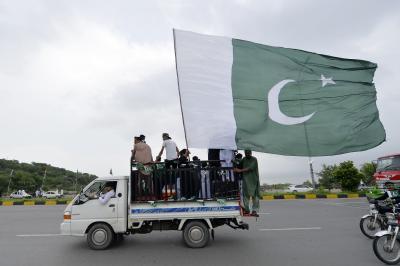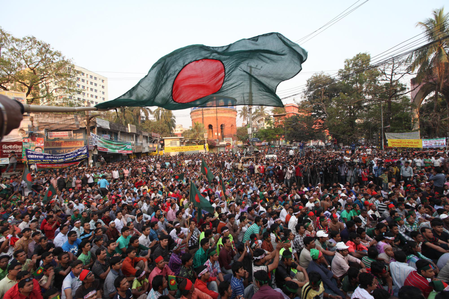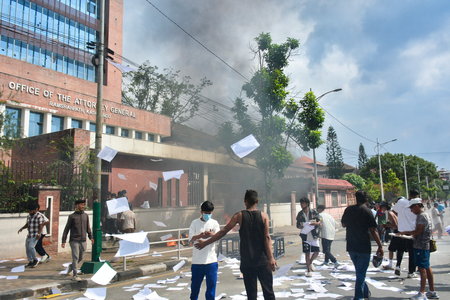
New Delhi, Oct 16 (IANS) A huge confrontation is in the making between the Muhammad Yunus regime and the Bangladesh Army. Although an uneasy calm persisted for long between the two sides, matters have become worse following the arrest warrants issued by the International Crimes Tribunal (ICT) against 24 army officers.
The ICT issued the warrants for their alleged involvement in enforced disappearances, torture, and secret detentions. These developments have led to immense frustration within the ranks.
Army Chief, General Waker-uz-Zaman, is facing immense pressure from his officers, and this led him to cancel his visits to India and Saudi Arabia.
Once again, the source of the problem here is the Jamaat-e-Islami. It has been putting pressure on Yunus to use the ICT for its own benefits, although the same had been set up by Sheikh Hasina, who was ousted last August in an uprising.
The tribunal was originally set up to try those who committed crimes during the 1971 Liberation War. However, the brief of the tribunal has now changed, and it is trying those who committed crimes such as enforced disappearances and extra-judicial killings during Sheikh Hasina’s regime.
The irony is that the chief prosecutor of the ICT, Tajul Islam, who was earlier defending members of the Jamaat, is now the chief prosecutor. He is now doing the Jamaat’s work to avenge the hangings of some of its members. Further, the ICT is being used to prosecute those who are perceived to be close to Hasina.
In all this, the army has become the casualty, and the arrest warrants have now caused a furore within the institution.
Bangladesh watchers say that currently, in Bangladesh, the only sane institution is the army. It has shown an immense amount of restraint. It wanted the law to take its own course to bring down the rioting and meaningless violence that had engulfed the nation. It would not have been difficult for the army to take over the country when it descended into chaos following the ouster of Hasina. However, it respected the Constitution and even installed an interim government until the elections were held.
However, the army did not anticipate that Yunus, who was chosen by the students who led the uprising, would be a puppet of the Jamaat. The Jamaat wants the army replaced at any cost with the radical Islamic Revolution Army (IRA). This move is being resisted by the army as it is aware that an institution like the IRA would not follow the Constitution of Bangladesh and would instead pave the way for the installation of the Sharia Law.
Yunus and the Jamaat are doing everything possible to break the army. They are aware that such orders by the ICT, which are nothing but a witch-hunt, would eventually cause a revolt within the army. This would make a case for them to bring in the IRA with the excuse that the army is unsteady.
Making things worse for the army chief is that many within the ranks have become stooges of the ISI. This means that they would be directly under the control of the Jamaat. An Indian official said that this could be the worst crisis that the army has faced since its inception. The army chief has no one backing him in the interim government. There is also a major worry of radicalisation within the ranks, and if this takes place in a big way, a revolt would be imminent.
Sensing these developments, the Bangladesh Nationalist Party (BNP) cautioned Yunus against antagonising the army. The BNP said that a balance should be maintained, and good relations with the army are a must. Salahuddin Ahmed, a standing committee member of the BNP, said that they do not want to take any risk as they cannot afford that.
The Jamaat, however, is in no mood to listen and would continue with its witch-hunt against army officials and also members of the Awami League. Since Hasina left the country, not only has the Awami League been banned, but scores of its leaders have been thrown behind bars. These developments that are taking place openly and blatantly put Bangladesh in a risky situation. The experts warn that a revolt not just within the army, but also by the people, could be expected if things do not change rapidly.
–IANS
vicky/skp




